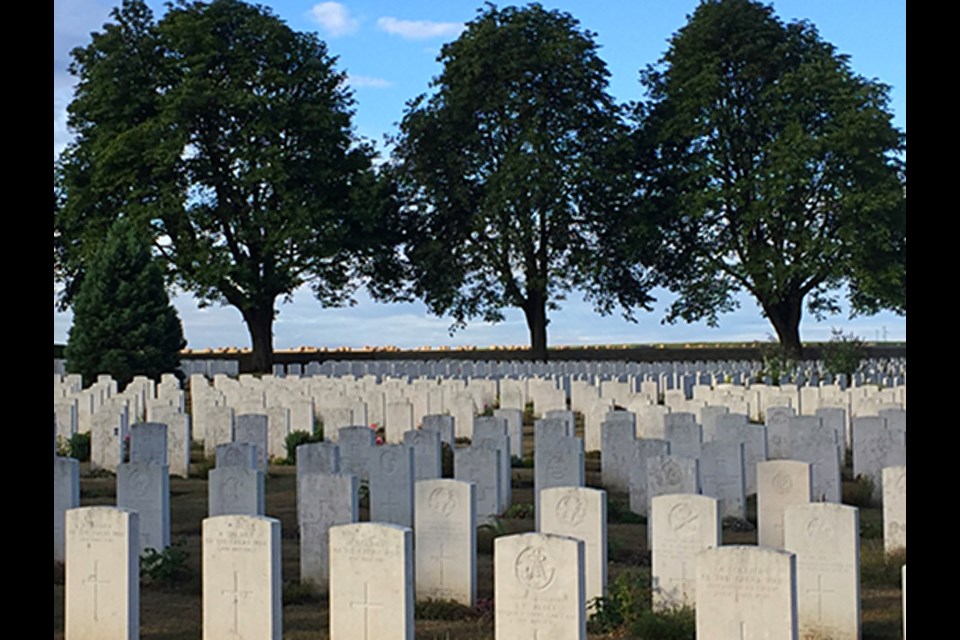A Guelph school teacher calls a recent trip to France to connect with Canada’s war past a “life-changing,” both personally and professionally.
Megan McLeish, a Grade 3 teacher at Fred A. Hamilton Public School, was chosen to join 24 other school teachers from across the country for the trip through the Juno Beach Centre.
It’s called the Educator’s Battlefield Tour and involves involved visiting a number of Canadian-related war sites in France and Belgium, from battlefields to Juno Beach to the cemeteries where Canadian soldiers lay.
More than that it involved visiting the towns and villages that were liberated by Canadian troops in World War I and World War II.
“Not to be over-dramatic, but it was quite life-changing, it really was,” said McLeish.
“We got to walk where our veterans walked and where they served during the two wars.
“The idea is that we bring all of our experiences and all the information we gather back into the classroom and help students become more aware of Canadian history.
“We were welcomed into these places as representatives of Canada,” McLeish said. “We were guests of honour."
In Caen there was a ceremony marking the liberation of the town and McLeish got to address about 200 people about the trip and what it meant to her.
McLeish said the reverence the people of France and Belgium have for Canadians because of what they did for them during the wars is obvious.
“In the majority of towns we visited, the Canadian flag is flown alongside the flag of France,” she said.
Several people remarked how McLeish and the rest of the group were the “descendents of the liberators” and were very open about telling stories of what happened.
“One villager said she remembered ‘the day our town was taken from us, but I also remember the day the Canadians came and saved us,’” McLeish remembers.
“We are not forgotten there at all. It was this incredibly humbling experience.”
It wasn’t uncommon for the whole group of 25 to be invited to someone’s house for refreshments.
Activities included cleaning up a Canadian soldier’s grave and learning his story.
“You feel like a proud Canadian.”
A couple of moments stood out.
One was hearing a man speak at an event where he said “you Canadians, your hearts are as big as your country. You saved us twice. We will never forget.”
The second was a personal one, when she walked on Vimy Ridge, where her great grandfather had served.
“I think when you make a personal connection with the history it can be quite a powerful moment.
“I’ll never forget walking up to the monument and thinking ‘wow, this is where my great grandfather served.’”
Although the details of the two world wars aren’t part of the Grade 3 curriculum, McLeish said she will still find ways of helping those students understand what Remembrance Day is about and how Canadians helped others.
“We can help bring those messages to our students, that this is how we are viewed and this is our history.”
